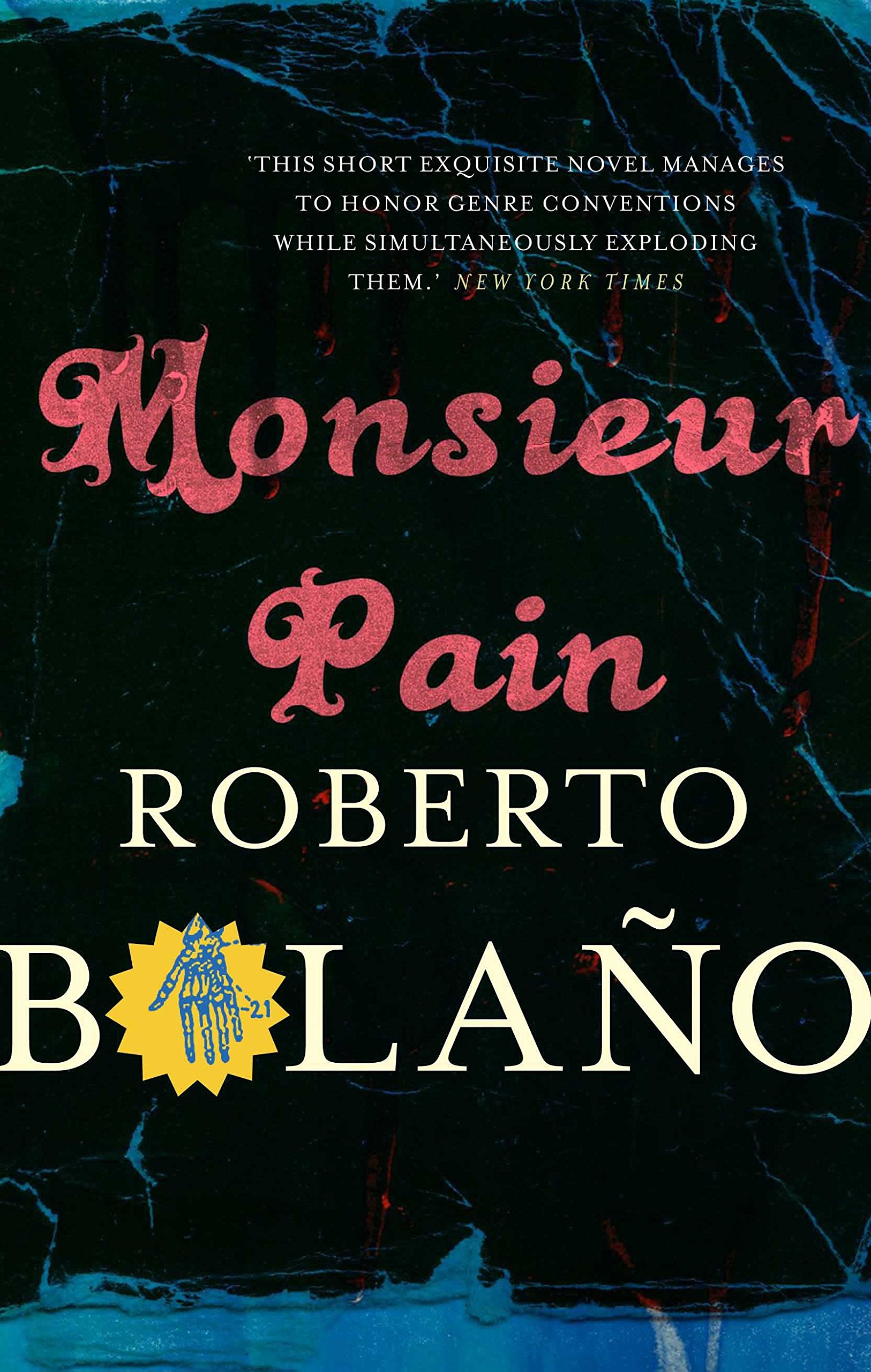Roberto Bolano takes us into an odd, dark, but comic underworld in this strangely tender noir novel.
A Bolano classic. The Peruvian poet César Vallejo is in the hospital, afflicted with an undiagnosed illness and unable to stop hiccuping. His wife calls on an acquaintance of her friend Madame Reynaud: the mesmerist Pierre Pain. Pain, a timid bachelor, is in love with the widow Reynaud and agrees to help. But two mysterious Spanish men follow him and bribe him not to treat Vallejo. Ravaged by guilt and anxiety, Pain does not intend to abandon his new patient, but his access to the hospital is barred and Madame Reynaud mysteriously leaves Paris. Another practitioner of the occult sciences enters the story (working for Generalissimo Franco, using his mesmeric expertise to interrogate prisoners) ― as do Mme. Curie, tarot cards, an assassination, and nightmares. Meanwhile, a haunted Monsieur Pain wanders the crepuscular, rainy streets of Paris. . . .
"Monsieur Pain plays with genre the way a cat plays with a mouse."
― The Los Angeles Times
"A surrealistic attic of unlikely juxtapositions. . . . The novel melds existential anxiety to political terror in a measure peculiar to Bolano. Imagine the protagonist of Poe’s 'Tell-Tale Heart' if he were being interrogated by the secret police on suspicion of having hidden subversives behind his wall."
― Will Blythe, The New York Times Book Review
"John Coltrane jamming with the Sex Pistols."
― John M. Richardson, Esquire
"Delightfully noirish."
― Brad Hooper, Booklist
"Roberto Bolano was an examplary literary rebel. To drag fiction toward the unknown, he had to go there himself, and there invent a method with which to represent it. Since the unknown place was reality, the results are multi-dimensional."
― Sarah Kerr, The New York Review of Books
"Bolano wrote with the high-voltage first-person braininess of a Saul Bellow and an extreme subversive vision of his own."
― Francisco Goldman, The New York Times Magazine
"This beautifully translated early novella, set in Paris... joins the late author's other works in all its aching splendor."
― San Francisco Chronicle
"Monsieur Pain, an early novella, beautifully translated by Chris Andrews, joins his other works in all their aching splendour."
― Carolina de Robertis, National Post


